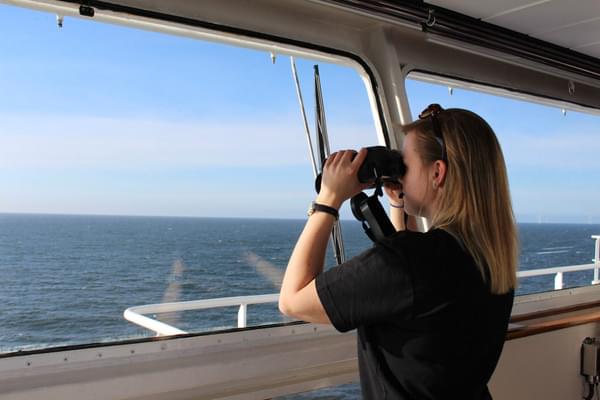In a remarkable first for Cornish waters, two orcas from the Iberian population were spotted near the Isles of Scilly, confirming their northernmost sighting to date. The rare encounter was made by skipper Joe Pender during a seabird survey near St Agnes earlier this month.
The orcas, later identified as members of the elusive Iberian C pod, were seen near Pol Bank southwest of Bishop Rock. Pender, who operates Scilly Pelagics tours, initially noticed unusually large dorsal fins before realising he was looking at orcas - not common dolphins. "Everyone on board was ecstatic," he said. "I've only seen one before, about 25 years ago."
Rebecca Allen of the Cornwall Wildlife Trust confirmed it was the first recorded sighting of Iberian orcas in the region. These orcas typically inhabit the Straits of Gibraltar during winter, making their presence in Cornwall highly unusual.
Sarah Matthews from Dolphin Zone identified one of the orcas as C002, nicknamed Freyja, from the tiny and mysterious Vega pod. The pair are believed to be females and are never seen with calves or other orcas, raising concerns they may be the last of their kind. The C pod is considered one of the most mysterious groups of Iberian orcas. Once consisting of three individuals, only two now remain. Unlike most Iberian orcas that feed on bluefin tuna, this pair appears to favour smaller fish, suggesting a distinct ecological niche. Their highly elusive behaviour and irregular movements, along with their isolation, have led researchers to believe they may represent a unique and possibly endangered eco-type - potentially the last of their kind.
While exciting, the sighting underscores shifting marine patterns likely linked to climate change. Allen noted increasing sightings of humpbacks, fin whales, tuna, and even booming octopus numbers. "We’re seeing so many changes. It really feels like the seas are shifting," she said.

The only way we can create safe spaces for whales and dolphins is by monitoring them and that's where our amazing army of citizen scientists come in. If you want to help us to collect data that can be used to hold governments to account join one of our training courses learn.orca.org.uk

/IMG_7387.jpg?w=900&h=600&q=85&auto=format&fit=crop&dm=1683137498&s=c21d1751969ee8fa0993670414fb79f9)